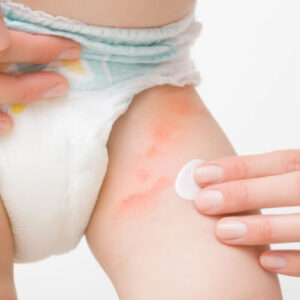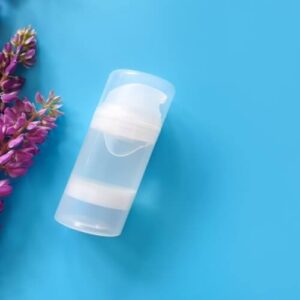The best cough medicine for children, and how effective are medicines for itching
Cough is one of the disturbing symptoms in children, usually accompanied by colds and flu or allergic rhinitis and chest. The best cough medicine for children On the type of cough if it is accompanied by phlegm or dryness, the health condition causing it and the age of the child.
Learn in this article about sex Cough medicines for childrenIndications for their use, as well as instructions and precautions for their use.
Types of cough medicine for children
different Cough medicine for children Among the drugs that relieve a cough accompanied by phlegm and others that relieve a dry cough, they include: [1] [2] [3] [4] [5]
- Cough suppressants: Cough suppressants relieve a dry cough, especially before bed. Examples of these over-the-counter medications are Dextromethorphan.
- sputum Use it Medicines to treat cough and phlegm in children Sometimes, especially those who suffer from thick phlegm that is difficult to get rid of, because expectorants work to thin the phlegm to make it easier to get it out with a cough. Guaifenesin is the most popular drug Cough medicine for children and expectorants as well as adults.
- dissolve phlegm: Expectorants reduce the viscosity of phlegm and thin it to make it less thick and easier to pass with a cough.
- Anti-congestants: Decongestants help relieve nasal congestion, which in some cases can lead to a dry cough, because they reduce swelling of the airways and relieve postnasal drip, such as: Pseudoephedrine And phenylephrine.
- Anti-allergic drugs: Antihistamines, such as diphenhydramine, are used to treat coughs due to their role in relieving postnasal drip and runny or stuffy nose.
It is worth noting that these drugs are not used to treat cough in children under 4 years of age, unless the doctor recommends otherwise.
How effective is cough medicine for children?
Coughing is the body’s response to get rid of foreign substances; Therefore, cough suppressants are not recommended as a cough medicine for children, and cough suppressants have not been shown to be effective in children.
In addition, cough suppressants can cause serious side effects when used as a dry cough medicine for children. [1]
It is also forbidden to use anti-cough medicines containing narcotic substances, such as Codeine Hydrocodone for children, because it may slow the child’s breathing rate and may stop breathing. [6]
Because there is no evidence of the effectiveness of cough suppressants or sputum Relieving cough and increasing the possibility of side effects in children, the US Food and Drug Administration recommended not to give to infants and children less than 4 years Any of these drugs. While the American Academy of Pediatrics prefers not to give any cough medicine to children less than 6 years. [7]
Also, a doctor should be consulted before giving cough and cold medicines to children under 11 years of age.
Also read: Cough medicines: what are their types? How It Works?
Risks of using cough medicine for children
Children are more likely to get side effects from cough medicine, and they may overdose on the medicine Cough syrup for children Especially when using several cold and cough medicines together. [8]
The side effects of cough medicines include: [8] [9] [10]
- irritability;
- Insomnia.
- idleness.
- hallucinations;
- dizziness and sleepiness
- Nausea and vomiting
- Indigestion;
Also read: Dry cough treatment before bed for children and adults
Instructions for giving cough medicine to children
The following guidelines are recommended when giving cough medicine to children: [11] [12]
- Read the label and follow the directions on the package when using over-the-counter medications.
- Be sure to give the child the appropriate dose for the child’s age, and avoid increasing the dose or giving the medicine more times than is allowed.
- Be careful when using any Cough medicine for children with herbs Follow the instructions on the package, and avoid giving it to children under 4 without consulting a doctor.
- Use the dosage scale that came with the medicine, and do not give the medicine with a teaspoon or spoon because it is not accurate.
- Avoid using Cough medicines for children cause drowsiness, such as anti-allergic drugs in order to calm or hypnotize the child.
- Avoid using more than one cough and cold medicine for children that contains the same active ingredients.
Also read:
A cough in winter has many patterns and causes
In winter, most people suffer from colds and coughs of all kinds, there is a continuous and intermittent cough and also … read more
Natural alternatives to cough medicine for children
There are many natural ways as an alternative to using cough medicine for children, which help soften the phlegm and calm the cough, such as: [13]
- Liquids: Drinking fluids is one of the best ways Cough treatment for children without drugs Drinking plenty of fluids, especially warm ones, helps soothe a sore throat and cough.
- honey: Taking honey by itself or drinking water with honey helps relieve cough, but it should not be used as a cough medicine for children under one year of age.
- Menthol Color: Applying menthol to children over two years of age on the chest and neck area may help calm a cough, as menthol helps improve breathing and sleep.
- Humidifiers: These devices moisten dry air and soothe coughs in children.
- Nasal drops containing water and salt: These drops contribute As a cough remedy for babies by cleaning the nose and reducing postnasal drip by placing it in the nose and using a nasal aspirator.
Also read: Home remedies for cough for children and babies
Reasons to visit a doctor
Usually a cough in children is not a dangerous symptom, but a doctor should be consulted in the following cases: [6]
- Cough with fever in babies under 3 months old.
- Persistent cough in babies under 3 months old.
- Cough with a rooster-like sound.
- Cough with voice close up or whistle.
- Inability of the child to breastfeed.
While emergency medical care should be sought in the following cases: [6]
- Blue of the child’s face, lips or tongue.
- Difficulty breathing or labored breathing.
- Faster than normal breathing rate.
- Presence of blood with cough.
My father had fluid removed from his lung a week ago and he is still having difficulty breathing, tiredness and fatigue, knowing that he has cancer in his adrenal gland, how long can these symptoms last??





